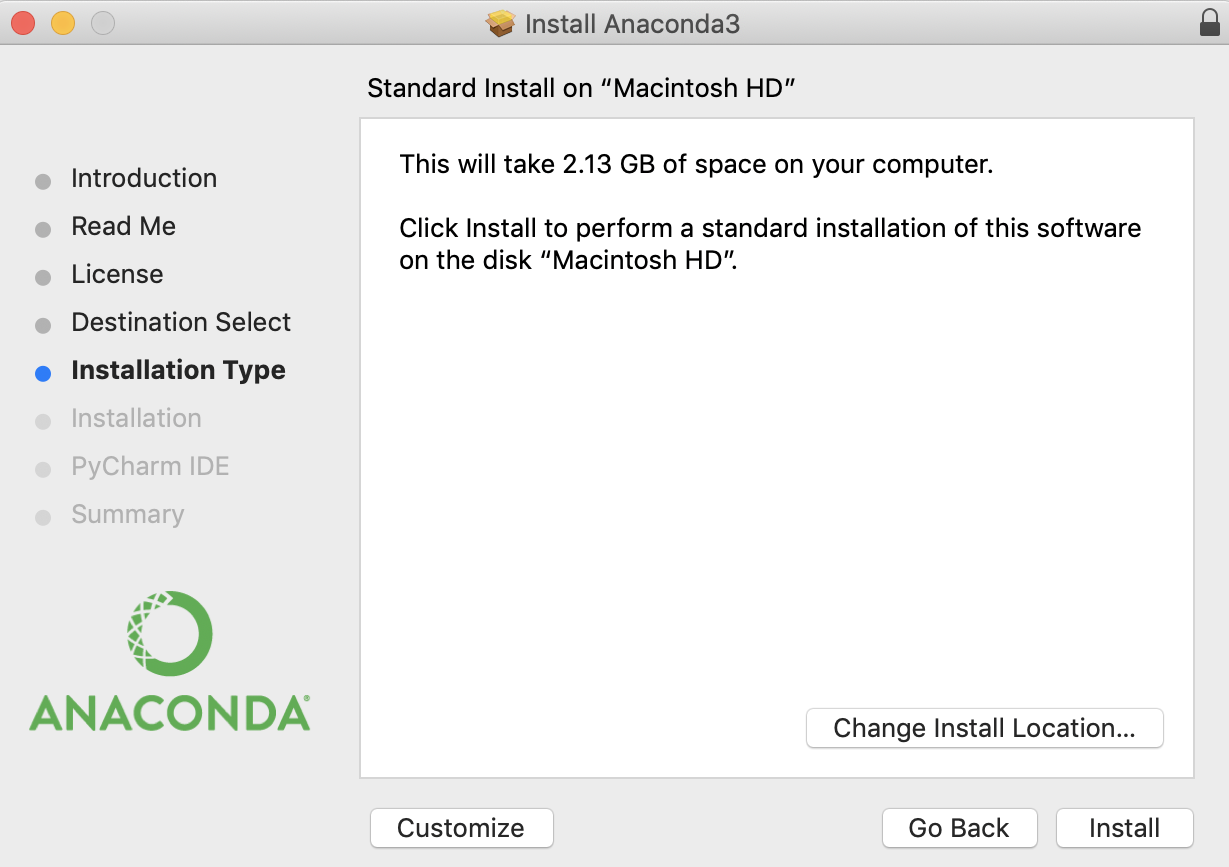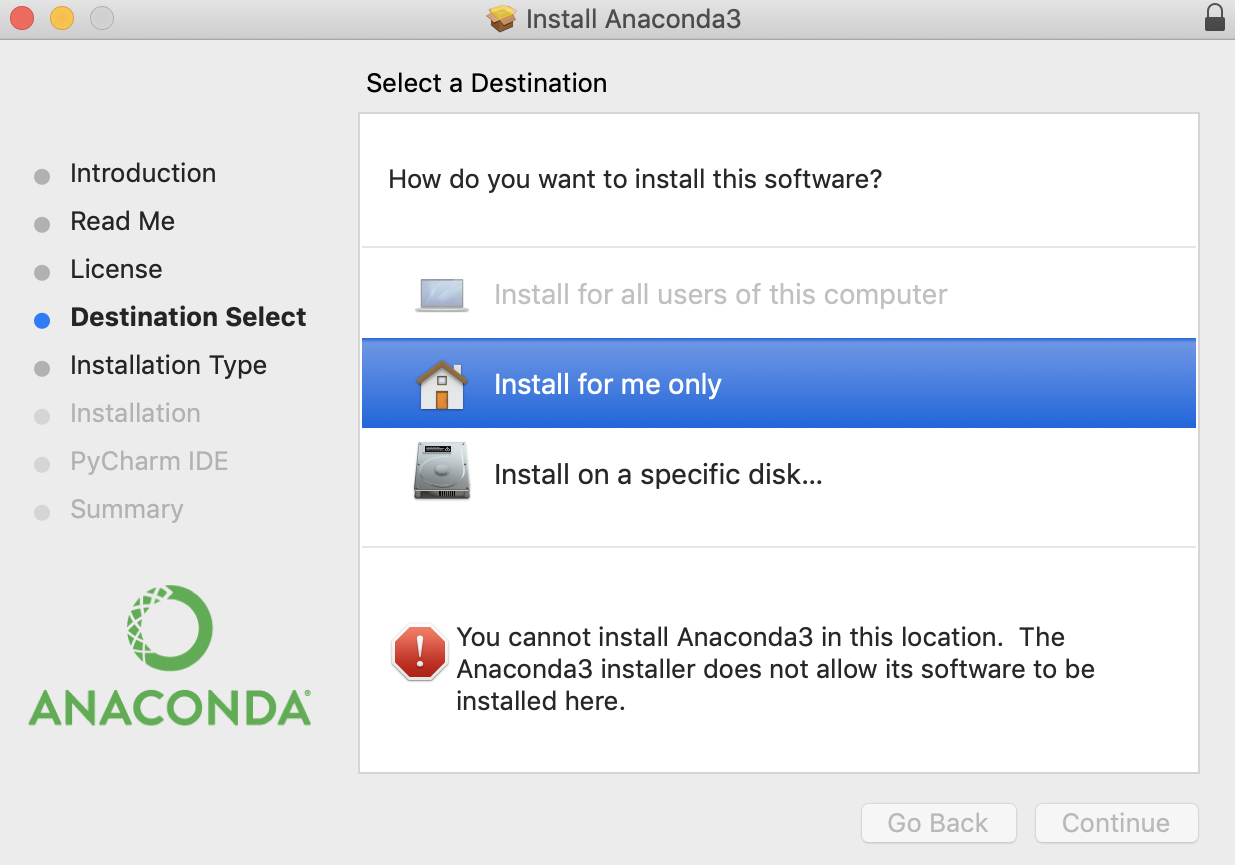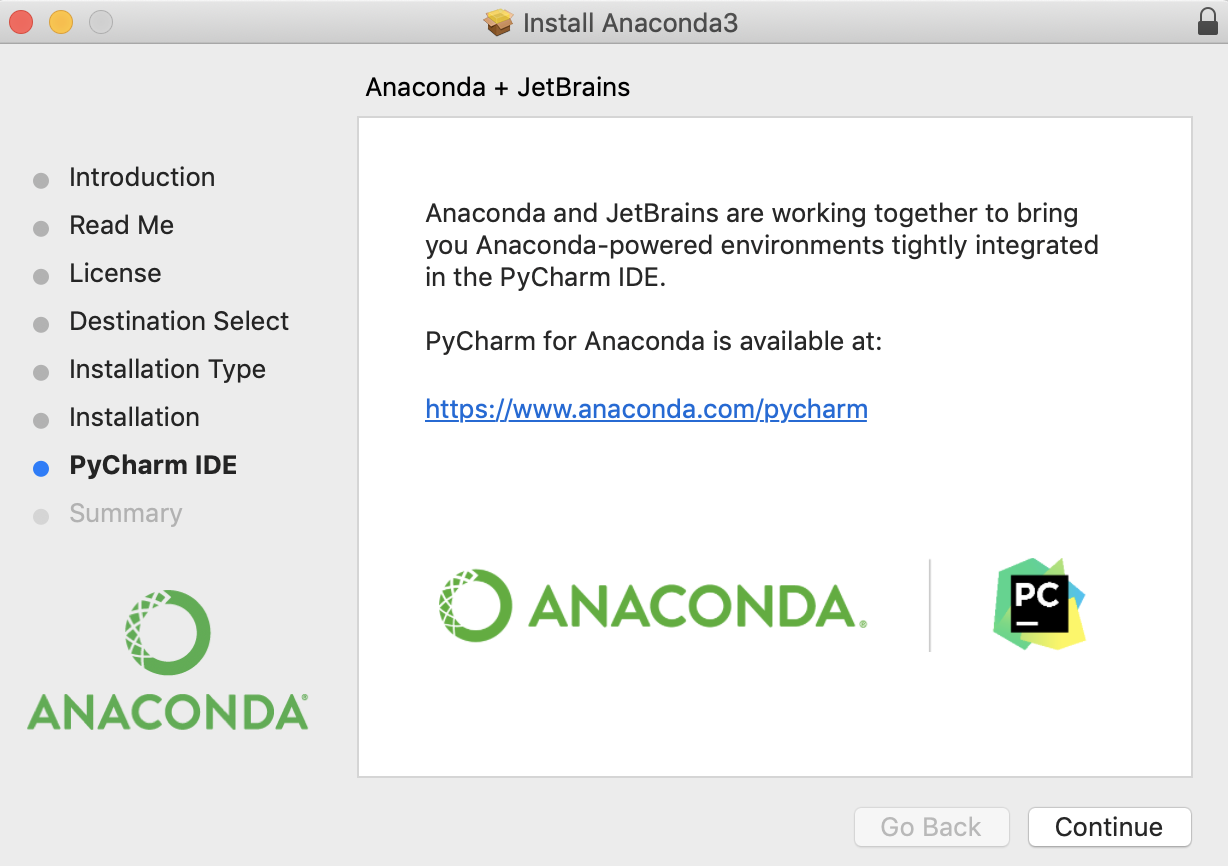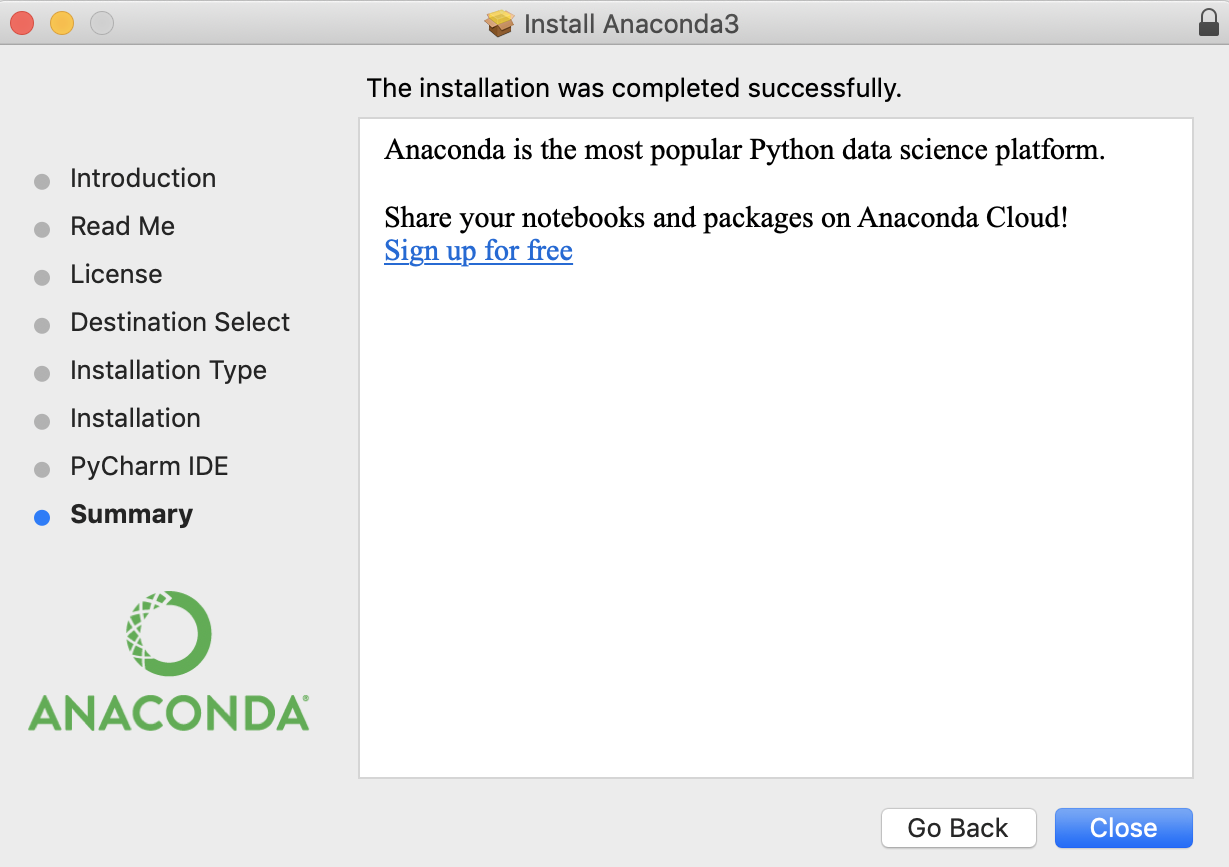Installing on macOS
You can install Anaconda using either the graphical installer (“wizard”) or the
command line (“manual”) instructions below. If you are unsure, choose the graphical install.
macOS graphical install
-
Download the graphical macOS installer for your version of Python.
-
OPTIONAL: Verify data integrity with MD5 or SHA-256.
For more information on hashes, see What about cryptographic hash verification?. -
Double-click the downloaded file and click continue to start the installation.
-
Answer the prompts on the Introduction, Read Me, and License screens.
-
Click the Install button to install Anaconda in your home user directory (recommended):
-
OR, click the Change Install Location button to install in another location (not recommended).
On the Destination Select screen, select Install for me only.
Note
If you get the error message “You cannot install Anaconda in this location,” reselect Install for me only.
-
Click the continue button.
-
Optional: To install PyCharm for Anaconda, click on the link to https://www.anaconda.com/pycharm.
Or to install Anaconda without PyCharm, click the Continue button.
-
A successful installation displays the following screen:
-
After your install is complete, verify it by opening Anaconda Navigator, a
program that is included with Anaconda: from Launchpad, select
Anaconda Navigator. If Navigator opens, you have successfully
installed Anaconda. If not, check that you completed each step above, then
see our Help page.
Tip
For more information about using Anaconda-Navigator,
see Navigator.
Using the command-line install¶
Use this method if you prefer to use a terminal window.
-
In your browser, download the command-line version of the
macOS installer for your system. -
OPTIONAL: Verify data integrity with MD5 or SHA-256.
For more information on hashes, see What about cryptographic hash verification? -
Install for Python 3.7 or 2.7:
-
For Python 3.7 enter the following:
bash ~/Downloads/Anaconda3-2019.07-MacOSX-x86_64.sh
-
For Python 2.7, open the Terminal.app or iTerm2 terminal application and then enter the following:
bash ~/Downloads/Anaconda2-2019.07-MacOSX-x86_64.pkg
Note
Include the
bashcommand regardless of whether or not you are using the Bash shell.Note
Replace
~/Downloadswith your actual path andAnaconda3-2019.07-MacOSX-x86_64.shwith actual name of the file you downloaded. -
-
The installer prompts “In order to continue the installation process, please review the license agreement.”
Click Enter to view license terms. -
Scroll to the bottom of the license terms and enter yes to agree to them.
-
The installer prompts you to Press Enter to confirm the location, Press CTRL-C to cancel the installation
or specify an alternate installation directory. If you accept the default install location, the installer
displays “PREFIX=/home/<user>/anaconda<2 or 3>” and continues the installation. It may take a few minutes to complete.Note
We recommend you accept the default install location. Do not choose the path as /usr for the
Anaconda/Miniconda installation. -
The installer prompts “Do you wish the installer to initialize Anaconda3
by running conda init?” We recommend “yes”.Note
If you enter “no”, then conda will not modify your shell scripts at all.
In order to initialize after the installation process is done, first run
source <path to conda>/bin/activateand then runconda init. -
The installer displays “Thank you for installing Anaconda!”
-
Optional: The installer describes the partnership between Anaconda and JetBrains and
provides a link to install PyCharm for Anaconda at
https://www.anaconda.com/pycharm. -
Close and open your terminal window for the Anaconda installation to take effect.
-
To control whether or not each shell session has the base environment
activated or not, runconda config --set auto_activate_base False. To run conda from anywhere without having the base environment
or True
activated by default, useconda config --set auto_activate_base False.
This only works if you have runconda initfirst.Note
conda initis available in conda versions 4.6.12 and later. -
To verify the installation, see Verifying your installation.




